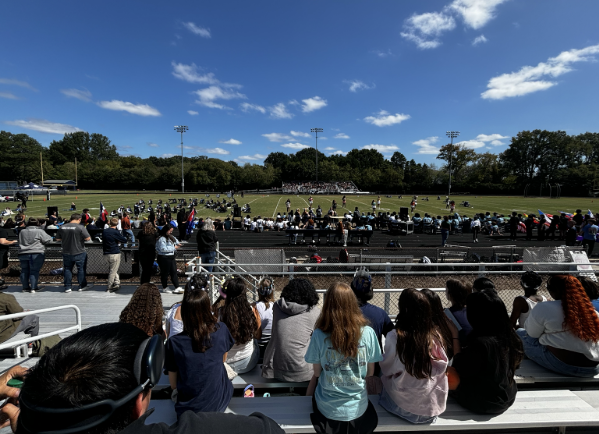Opinion: European Disasters Are Not the Only Ones That Matter

Media outlets not only ignore news that does not have a direct affect on locations outside of Europe or the US, but in their reporting often mischaracterize the conflict. This can result in viewers misunderstanding the full context of the situation.
May 7, 2022
The Russian invasion of Ukraine threw the entire world into a headspin. Following the invasion, commentators on every major news station analyzed the conflict from every angle, politicians voiced their opposition to the Russian aggressors, and a variety of conversations opening up on what the potential consequences of this action could be on the rest of the world.
Our oil prices skyrocketed, tariffs as well as multiple other monetary retaliations were made against Russia, and Ukraine was shipped weapons and relief to help them through this time. The Ukrainian people were given little warning, leading to the flooding of migrants into nearby countries, such as Poland, while trying to navigate a warzone. Throughout all of this, there has been an outpouring of support around the world for the Ukrainian people.
Nearly every major news station in every country has reported on the conflict, donations are pouring in from locations everywhere, and journalists are traveling to Ukraine and the surrounding regions to report both on the war and the people affected by it. While being a horrible time for the world and Eastern Europe, it also shows the resilience of their people with Ukraine claiming several victories over Russia with the larger and arguably more formidable army.
This is an important show of human compassion and perseverance. However, it also reveals a worldwide double standard. The outrage caused by the Russian invasion of Ukraine is in no way proportional to the outcry to disaster that occurs in countries considered the “global periphery.” These are countries in locations such as Africa, South America, and certain regions of Asia.
Some news commentators, such as Charlie D’Agata, have made statements such as, “This isn’t a place, with all due respect, like Iraq or Afghanistan that has seen conflict raging for years. This is a relatively civilized, relatively European… city where you wouldn’t expect that, or hope that it’s going to happen.” In other words, Mr. D’Agata is implying that “places like Iraq or Afghanistan” are not civilized, or this sort of violence and/or suffering is not atypical or entirely unwanted there.
Comments like this, and the Western world’s apathy to conflicts occuring in areas where the population is largely non-white, can find its links in the dehuminization of non-white individuals across the globe.
During the Israel—Palestine Crisis in 2021, the amount of support shown to the Palestinian people from the Western world was minimal. This was despite the fact that according to the International Court of Justice, UN General Assembly, and the United Nations Security Council, Israel is an occupying power extending past their originally negotiated borders. In addition, they affirm that their settlements are a “flagrant violation” of international law. Not only that, but oftentimes, that support was directed to the Israeli military and government despite their actions being found illegal by multiple international courts and their military actions far exceeding what was necessary or ethical.
In the United States, during the Black Lives Matter protest in the summer of 2020. the media focused its attention on the few protests that were interrupted by violence or vandalism as if that represented the majority. This was despite the fact that according to a non-profit organization, The Armed Conflict Location & Event Data Project (ACLED), over 93% of protests were peaceful. The messages of protestors facing police brutality were met with large indifference, and the message of Black Lives Matter itself met with responses of “Blue Lives Matter”, voicing support for the police perpetrating the violence they were protesting, or effectively dismissing their plight by saying “All Lives Matter.” A statement which proves to be counterproductive as they are saying “all lives matter” to argue against “black lives matter.”
Conflicts in the Middle East, Africa, and South America are ignored in favor of the newest trend, which recently tends to be culturally insensitive and possibly even offensive. Domestic conflicts in the United States and Europe are glossed over with brief segments and possibly a conversation of which the only goal is to delegitimize the issue.
This is not an argument to cease our support for Ukraine during this time, but instead a call for media and individuals to recognize their influence. This continued apathy to the plight of non-white people only exacerbates a trend of pity for individuals with European descent, and contempt for everyone else.











